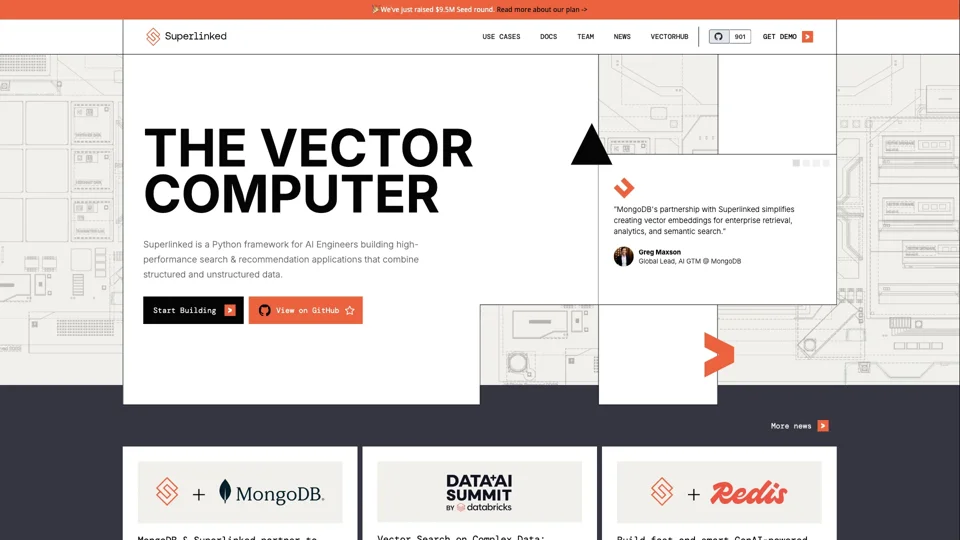What is Superlinked?
Superlinked is a Python framework for AI Engineers building high-performance search and recommendation applications that combine structured and unstructured data.
Key Features of Superlinked
-
Multi-modal Vectors: Combine text, images, and structured metadata into multi-modal vectors that fully describe your entities in their complex context.
-
Multi-objective Queries: Smoothly navigate the trade-off between multiple competing objectives like relevance, freshness, and popularity.
-
Infrastructure as Code: Manage the compute layer that sits between your data infrastructure and your vector database through a simple Python SDK.
-
Multiple Use-Cases, One System: Solve your information retrieval and feature engineering challenges with vectors.
How to Use Superlinked
-
Experiment: Describe and load your data, use Spaces to construct your indices and run queries - all in-memory within a Python notebook.
-
Deploy: Deploy this code on your computer or a cloud VM, connect it to your Vector DB.
-
Use: Push each of your entities to the auto-generated ingestion API and execute queries with query text and weight parameters using the auto-generated query API.
Pricing
-
Free: Experiment with Superlinked's features and capabilities without any costs.
-
Subscription: Unlock the full potential of Superlinked with our affordable subscription plans.
Helpful Tips
-
Start Building: Start building your high-performance search and recommendation applications with Superlinked today.
-
Explore Use Cases: Explore the various use cases of Superlinked, including RAG, semantic search, and recommendations.
Frequently Asked Questions
-
What is the Vector Computer?: The Vector Computer is a reliable and efficient vector compute solution that puts vectors into production.
-
How does Superlinked work with MongoDB?: Superlinked partners with MongoDB to unlock the power of GenAI in the enterprise.
-
What is the difference between Superlinked and Redis?: Superlinked and Redis partner to make vector search easier to apply to complex data for use cases like RAG with LLMs and e-commerce recommendation systems.
